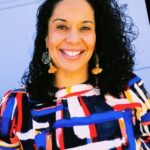
2024 HOPE Summit Schedule
Learn how to implement HOPE at the 2024 HOPE Summit
The Fourth Annual HOPE Summit, which took place virtually on March 20 and 21, 2024, featured two days of keynote presentations, a panel discussion, workshop sessions, and networking opportunities. Participants created lasting relationships with colleagues from around the country and world and earned continuing education credits (up to 9 CME/CEU credits).
In addition to the Summit, the HOPE National Resource Center hosted our Annual Week of HOPE from March 18-22, 2024. During the Week of HOPE, we hosted events and shared new resources that honor and promote the widespread use of positive childhood experiences.
Week of HOPE | March 18–22, 2024
Anti-racism Training
Monday, March 18, 2024 | 2:00 PM EST
Anti-racism Model Reveal Press Conference
Tuesday, March 19, 2024 | 2:00 PM ET
HOPE Awards Ceremony
Wednesday, March 20, 2024 | 6:00 PM ET
HOPE Children’s Book Character Reveal
Thursday, March 21, 2024 | 11:00 AM ET
HOPE Innovation Network: Mini Summit (private event)
Friday, March 22, 2024 | 2:00 PM ET
Day 1 | Wednesday, March 20, 2024 | 11:00 AM – 5:00 PM ET
Welcome & Overview
Robert Sege, MD, PhD
Director of the HOPE National Resource Center
Keynote Address | The Promises of HOPE: Building a World that Centers the Positive
Leonard Burton
President of the Center for the Study of Social Policy
11:00 AM – 12:30 PM ET
Break / Networking / Booths
12:30 PM – 1:30 PM ET
Workshops | Session 1
1:30 PM – 3:00 PM ET
Break / Networking / Booths
3:00 PM – 3:30 PM ET
Workshops | Session 2
3:30 PM – 5:00 PM ET
Day 2 | Thursday, March 21, 2024 | 11:00 AM – 4:30 PM ET
Keynote Address | HOPE in Action
Aimee Zeitz-Gruber, MFT
Executive Director of Community Well-Being and Project Director of Partners in Prevention at the YMCA of San Diego County
11:00 AM – 12:00 PM ET
Break / Networking / Booths
12:00 PM – 1:00 PM ET
Workshops | Session 3
1:00 PM – 2:30 PM ET
Break / Networking / Booths
2:30 PM – 3:00 PM ET
Interactive Session / Panel Discussion / Wrap Up
3:00 PM – 4:30 PM ET
Wednesday, March 20, 2024 | 1:30 PM – 3:00 PM ET
- Building Workplace Resilience through HOPE
- Embracing Practice and Advancing HOPE through the Standards of Quality for Family Strengthening and Support
- HOPE from the Ground Up
- HOPE for All Ages
- HOPE-Informed Public Health Messaging and Communication: The Safe Sleep Plan
- If You Build it They Will Come: Creating a Partnership for a Resilient Kentucky (PaRK) to Promote HOPE Statewide
- The Ripple Effect of Parent Leadership
- What’s STRONG with Us? Amplifying Strengths in our Family Culture
- What does HOPE look like for ME? Exploring HOPE approaches and experiences in any role in your organization, to cultivate confidence, connection and belonging
Wednesday, March 20, 2024 | 3:30 PM – 5:00 PM ET
- Bringing HOPE to Life in Primary Care: Addressing Barriers to Equitable Access for Families
- Building HOPE in LEND: Increasing Healthy Outcomes for Children with Disabilities
- Building Workplace Resilience through HOPE
- Embracing Practice and Advancing HOPE through the Standards of Quality for Family Strengthening and Support
- HOPE for All Ages
- HOPE for Support Specialist
- How to Support Family Voice in Your Work
- Redefining Resilience within the Strengthening Families Framework
- Building HOPE in LEND: Increasing Healthy Outcomes for Children with Disabilities
Thursday, March 21, 2024 | 1:00 PM – 2:30 PM ET
- Building Workplace Resilience through HOPE
- Creating an Inclusive Environment for Children with Problematic Sexual Behaviors and their Families
- HOPE from the Ground Up
- HOPE-Informed Public Health Messaging and Communication: The Safe Sleep Plan
- Meeting the Moment to Take Positive Health Equity to Scale: Leveraging the Engagement In Action Framework to Catalyze Integrated Early Childhood Health Systems
- Redefining Resilience within the Strengthening Families Framework
- The Ripple Effect of Parent Leadership
- Unveiling Strengths: Navigating Beyond Wishful Thinking and Persisting in the Face of Adversity
- What’s STRONG with Us? Amplifying Strengths in our Family Culture
Keynote Addresses
The Promises of HOPE: Building a World that Centers the Positive
Wednesday, March 20, 2024 | 11:00 AM – 12:30 PM ET
About the Keynote Address
Sometimes shifting to the positive requires more discipline and strength than maintaining our focus on the negative. But despite this challenge, we owe it to ourselves and to those around us to do the hard work. Trauma-informed care is just a start on our shared journey towards building a world that centers the positive. So how do we, as early childhood professionals, shift our movement to one that promotes the healing, autonomy, dignity, and respect of all people? Join Leonard Burton, President of the Center for the Study of Social Policy, for a keynote address that will challenge your thinking about what your impact can be and encourage you to continue pushing the boundaries of what anti-racist, holistic, and positive care can be in the early childhood community.
About the Speaker
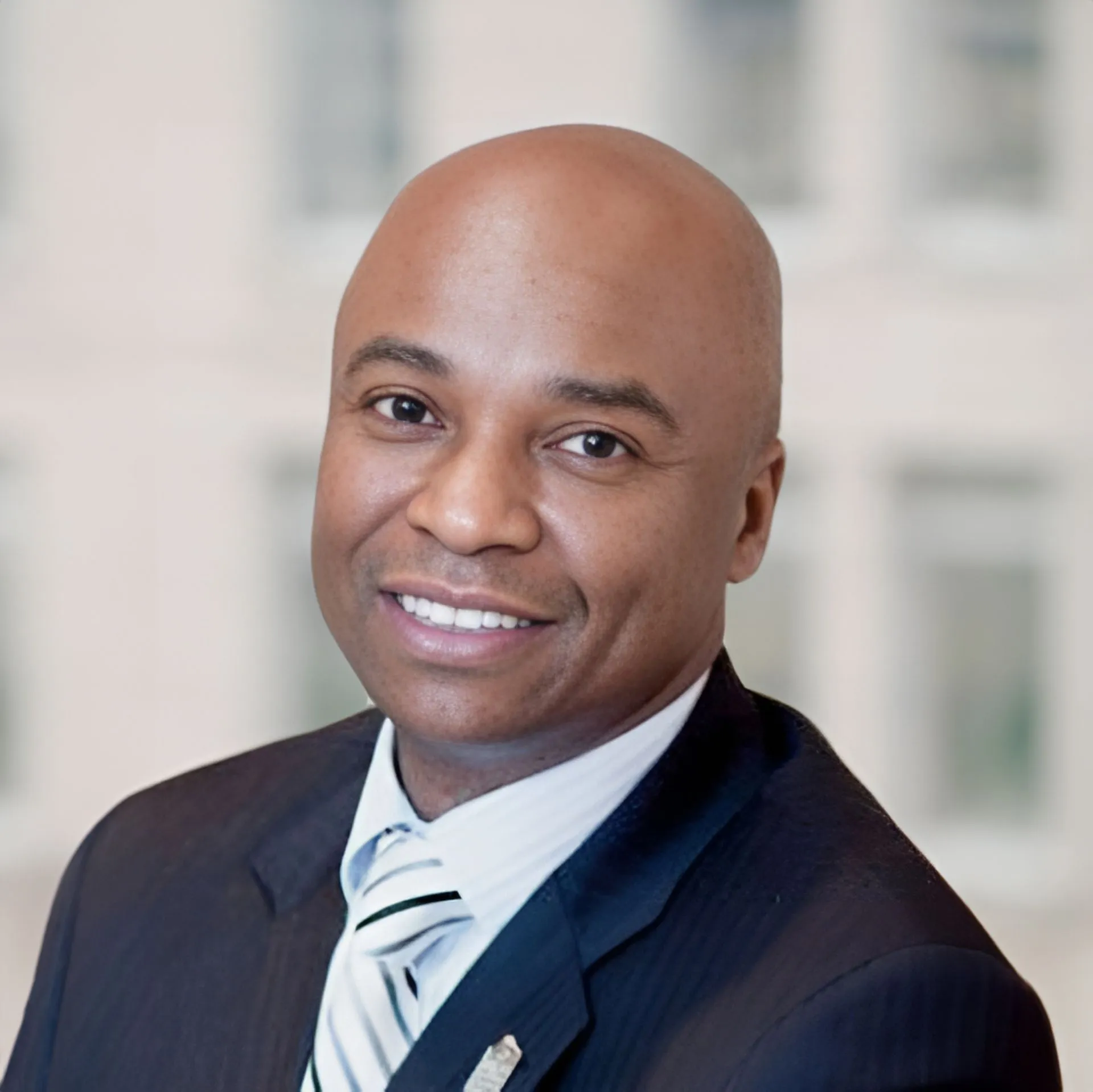
Leonard Burton is the President of the Center for the Study of Social Policy (CSSP). In this role, he brings more than three decades of leading anti-racist, intersectional social justice work including executive leadership in public social service systems, philanthropy, community change, faith-based programs, and youth development. Previously, Burton was a Senior Fellow at CSSP, working on the Systems Change and Public Policy teams and focusing on promoting healthy development and well-being for young people involved in intervening public systems. He is also a co-developer of the upEND Movement which focuses on abolishing family policing and reimagining and creating better means of care for children and families.
Burton serves on the Boards of Building Bridges Initiative, as well as leading research organization WestED. He is also a national advisor and consultant to the National Child Traumatic Stress Network at Northwestern University supporting youth engagement and anti-racist practices in the context of child welfare and juvenile justice. Burton served as faculty coach on the Breakthrough Series Collaboratives for Transition Age Youth and Father’s and Paternal Relatives in Child Welfare.
Burton holds a bachelors’ degree in public administration from Austin Peay State University and a masters’ degree in education-administration and supervision from Tennessee State University. He is a member of Kappa Alpha Psi Fraternity Inc., and a combat veteran of the US Army.
HOPE in Action
Thursday, March 21, 2024 | 11:00 AM – 12:00 PM ET
About the Keynote Address
This keynote address will highlight the successes and lessons learned through the YMCA of San Diego County‘s journey of adopting HOPE as a core service delivery framework. Key aspects of the implementation will be explored at the practice, program and policy levels, including:
- Change management approaches
- Integration activities
- Staff and supervisor engagement
- Impact evaluation and sustainability planning.
Inclusion of community partners and efforts to become a HOPE-inspired community will also be shared.
About the Speaker
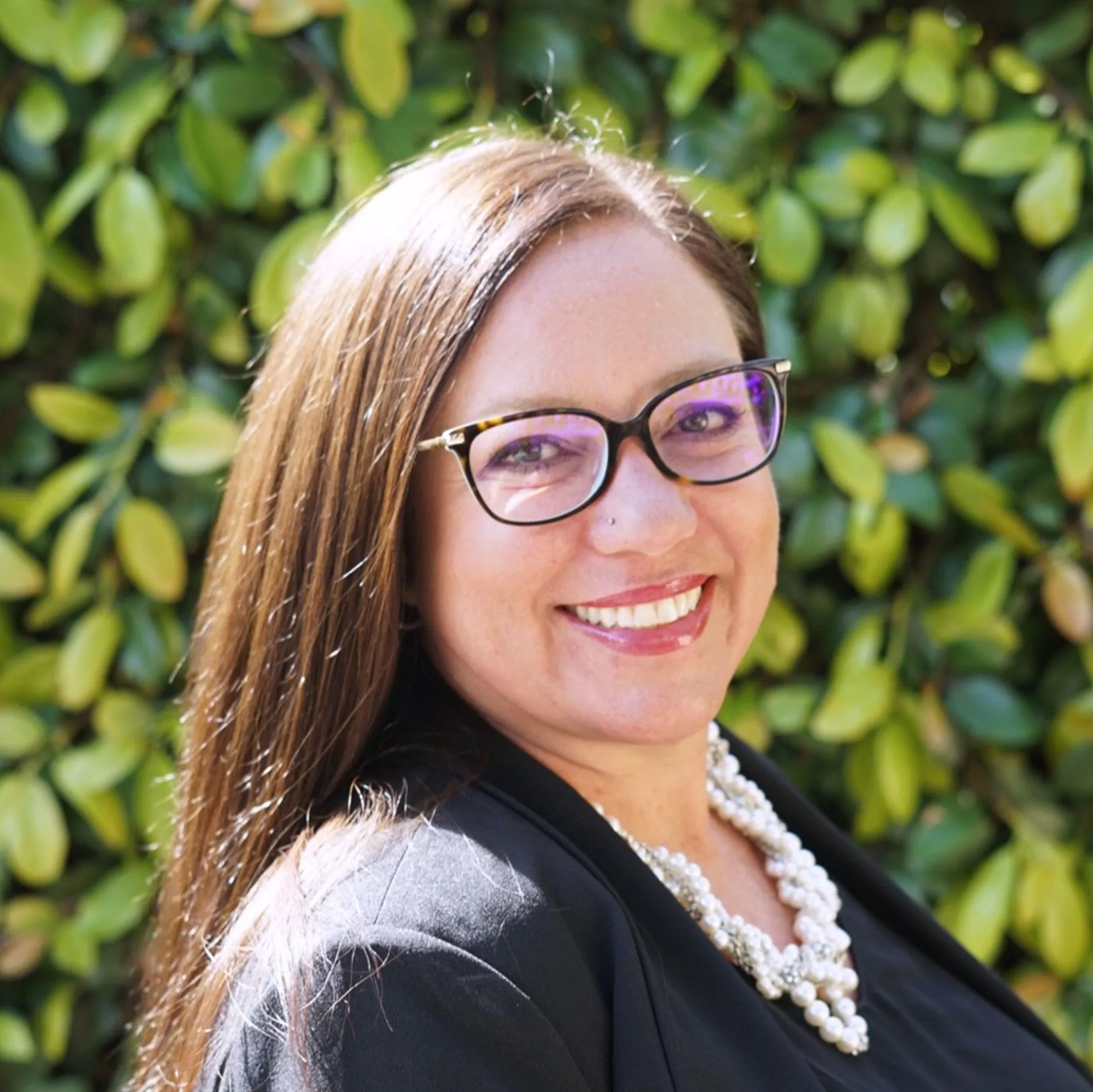
Aimee Zeitz, MFT, has over twenty years of experience in non-profit leadership, built on a foundation of strategic partnerships and authentic collaboration. In 2017, she joined the YMCA of San Diego County and currently serves as the Executive Director of Community Well-Being and Project Director for Partners in Prevention, a local community-based collaborative effort to increase child and family wellbeing and prevent child abuse and neglect. Prior to joining the YMCA, Aimee worked in the areas of education, youth development, family strengthening and support, health and philanthropy, including clinical work and direct service delivery with young people, their families and others who support their growth and development. Aimee attended Smith College, earning her bachelor’s degree in anthropology, followed by her master’s in marriage and family therapy at San Diego State University.
Workshops
The 2024 HOPE Summit featured interactive workshops across three sessions led by experts in their fields who showcased real examples of how they are practicing the HOPE framework and positive childhood experiences in their own work. Many workshops were offered multiple times throughout the Summit.
- Bringing HOPE to Life in Primary Care: Addressing Barriers to Equitable Access for Families
- Building HOPE in LEND: Increasing Healthy Outcomes for Children with Disabilities
- Building Workplace Resilience through HOPE
- Creating an Inclusive Environment for Children with Problematic Sexual Behaviors and their Families
- Embracing Practice and Advancing HOPE through the Standards of Quality for Family Strengthening and Support
- HOPE from the Ground Up
- HOPE for All Ages
- HOPE for Support Specialist
- HOPE-Informed Public Health Messaging and Communication: The Safe Sleep Plan
- How to Support Family Voice in Your Work
- If You Build it They Will Come: Creating a Partnership for a Resilient Kentucky (PaRK) to Promote HOPE Statewide
- Meeting the Moment to Take Positive Health Equity to Scale: Leveraging the Engagement In Action Framework to Catalyze Integrated Early Childhood Health Systems
- Redefining Resilience within the Strengthening Families Framework
- The Ripple Effect of Parent Leadership
- Unveiling Strengths: Navigating Beyond Wishful Thinking and Persisting in the Face of Adversity
- What’s STRONG with Us? Amplifying Strengths in our Family Culture
- What does HOPE look like for ME? Exploring HOPE approaches and experiences in any role in your organization, to cultivate confidence, connection and belonging
- Building HOPE in LEND: Increasing Healthy Outcomes for Children with Disabilities
Bringing HOPE to Life in Primary Care: Addressing Barriers to Equitable Access for Families
About the Workshop
Primary care providers are uniquely poised to celebrate and support the Four Building Blocks of HOPE with the families they care for. Yet because the research is relatively new, many providers did not receive training in resiliency parenting education or strategies to co-create paths to remove barriers preventing equitable access to protective, positive childhood experiences (PCEs). Without these elements, placing referrals and celebrating strengths alone leaves those with barriers at a consistent disadvantage. Rates of provider burnout are soaring in part due to providers feeling unable to do anything to help the families who are experiencing toxic levels of stress and fundamentally inequitable access to proven health promoting factors.
This session will equip primary care providers with tools and strategies to create new habits within the context of their existing busy practices to more consistently celebrate strengths while also having a useful response to areas of need the family identifies in order to promote PCEs and family health. After reviewing how to use the tools and strategies as an immediate response as well as a bridge to services/referrals, the session will include three interactive learning sessions:
- Explore co-creating patient centered Plan-Do-Study-Act cycles to expand access to protective factors using HOPE building blocks with strategies for addressing representative barriers.
- Explore how active listening and motivational interviewing transforms a visit when parents are asking for help with relational health and emotional growth.
- Explore how you’ve seen inequitable access to protective factors in your practice and identify how you will use “habit stacking” to consistently offer actionable strategies to remove barriers when you return.
Six Standards of HOPE Covered
- Anti-Racist Practice and Culturally Resonant Care
- Amplifying Four Building Blocks
- Continuous Learning and Improvement
- Bridge to HOPE
Workshop Sessions
- Wednesday, March 20, 2024 | 3:30 PM – 5:00 PM ET
About the Presenter
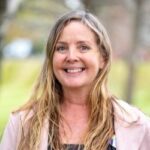 Gretchen Pianka, MD, MPH, FAAP has been practicing for over 20 years in pediatric primary care. She created “Resilience University” as a way for primary care providers to address toxic stress in the context of clinical encounters and is authoring a book for the American Academy of Pediatrics on this topic. Pianka’s work helps expand the depth and breadth of providers’ resiliency parenting education and gives them skills for co-creating problem solving strategies to remove barriers to positive childhood experiences. She currently practices at Greater Portland Health in Maine.
Gretchen Pianka, MD, MPH, FAAP has been practicing for over 20 years in pediatric primary care. She created “Resilience University” as a way for primary care providers to address toxic stress in the context of clinical encounters and is authoring a book for the American Academy of Pediatrics on this topic. Pianka’s work helps expand the depth and breadth of providers’ resiliency parenting education and gives them skills for co-creating problem solving strategies to remove barriers to positive childhood experiences. She currently practices at Greater Portland Health in Maine.
Building HOPE in LEND: Increasing Healthy Outcomes for Children with Disabilities
About the Workshop
“Increasing Healthy Outcomes for Children with Disabilities,” a transformative workshop designed to empower participants with knowledge and strategies to enhance the well-being of children facing disabilities. Our primary focus is on fostering Hope, Optimism, Participation, and Empowerment (HOPE) for both children and their families.
The workshop is structured to engage participants actively through a combination of informative sessions, interactive discussions, and hands-on activities. Our team of experts will present the latest research findings, evidence-based interventions, and practical tools aimed at improving the overall health outcomes of children with disabilities
Six Standards of HOPE Covered
- Continuous Learning and Improvement
- Amplifying Four Building Blocks
Workshop Sessions
- Wednesday, March 20, 2024 | 3:00 – 5:00 PM ET
About the Presenters
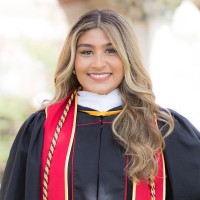
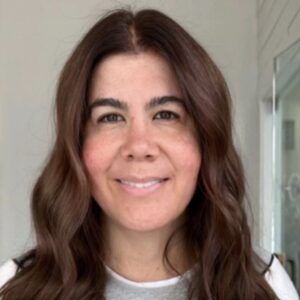
Natalia Lewis is a dedicated Parent Advocate and support group facilitator with a diverse educational background. As the Co-Facilitator for the Frank D. Lanterman Regional Center Parent Collaborative Support Group, she plays a vital role in creating a supportive community for parents navigating the regional center system. Her commitment extends to her role as a Peer Support Partner, where she collaborates with fellow parents to provide guidance and assistance within the complex landscape of neurodevelopmental and related disabilities.
Lewis is a distinguished fellow of the CA-LEND program at CHLA, showcasing her dedication to ongoing education and leadership in the field. She is also a graduate of the Disability Voices United Emerging Leaders program, further highlighting her commitment to advocacy and empowerment.
Beyond her professional pursuits, Lewis is an active community volunteer, contributing her time and expertise to various boards, including the Regional Center, GUSD Adelante Latinos, and GUSD Disproportionality Educational Partner. Her involvement in these organizations reflects her passion for addressing educational disparities and fostering inclusivity within the community. With a background in Human Resources management, Lewis brings a unique perspective to her family support roles. She leverages her skills to assist working parents in navigating their professional environments while maintaining a healthy work/life balance, especially given the extraordinary demands of being a parent/caregiver to a loved one with disabilities.
As a Peer Support Partner, Lewis stands as a resilient advocate for her fellow parents and caregivers of children with disabilities. Her tireless efforts contribute significantly to building a more compassionate and understanding community, empowering individuals to navigate the complexities of raising children with unique needs.
Building Workplace Resilience through HOPE
About the Workshop
Why is building a resilient workforce important? Resilience can help manage stress and motivate them to face challenges with determination. Employees who feel supported are often happier, healthier, and more productive. This interactive workshop will discuss how employers can use the Four Building Blocks of HOPE (Relationships, Environment, Engagement, and Emotional Growth) to support their employees and help build skills for resilience.
Six Standards of HOPE Covered
- Knowledge of the HOPE Framework
- The Bridge to HOPE
Workshop Sessions
- Wednesday, March 20, 2024 | 1:30 PM – 3:00 PM ET
- Wednesday, March 20, 2024 | 3:30 PM – 5:00 PM ET
- Thursday, March 21, 2024 | 1:00 PM – 2:30 PM ET
About the Presenter
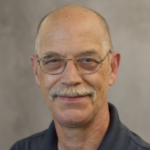 Dana Book is a Training Specialist with the Kansas Children’s Service League. Combining 35 years of business leadership and over 30 years of parenting experience, Book works with coalitions, businesses, and other organizations to help equip employers and communities to create family-friendly workplaces and build resilience within the community.
Dana Book is a Training Specialist with the Kansas Children’s Service League. Combining 35 years of business leadership and over 30 years of parenting experience, Book works with coalitions, businesses, and other organizations to help equip employers and communities to create family-friendly workplaces and build resilience within the community.
Creating an Inclusive Environment for Children with Problematic Sexual Behaviors and their Families
About the Workshop
Childhood problematic sexual behaviors (PSB) affect a significant number of children and families. Those individuals impacted need acceptance, nonjudgment, and appropriate treatment. Yet, it can be difficult to find support after PSB occurs, as many professionals and those in the public view children who engage in PSB to be beyond hope.
In this session, attendees will learn about (1) the difference between typical and PSB among children, (2) needs of children and families impacted, and (3) HOPE-informed ways to increase organizational responsiveness to and inclusion of families impacted by PSB. This session will aim to (1) describe the differences between typical and problematic childhood sexual behaviors, (2) dispel myths, and (3) discuss needs of parents, children who engage in PSB, and other children, before moving into practical, HOPE-informed suggestions that organizations can consider to increase their responsiveness and inclusion of families impacted by PSB. These steps will consider staff at all levels of a non-profit organization. Attendees will consider a families’ entire experience with an organization, from the first phone call through conclusion of services, and discuss the places where families impacted by PSB may find themselves feeling alienated, misunderstood, or even discriminated against.
Throughout the session, attendees will reflect on their organizations’ current strengths and opportunities to grow responding to PSB. The facilitator will encourage attendees to share questions and challenges. Attendees will choose at least one action step they can implement to work towards a more intentionally responsive and inclusive environment for families impacted by PSB.
Six Standards of HOPE Covered
- Supporting Family Strengths and Resilience
- Anti-Racist Practice and Culturally Resonant Care
- Continuous Learning and Improvement
Workshop Sessions
- Thursday, March 21, 2024 | 1:00 PM – 2:30 PM ET
About the Presenter
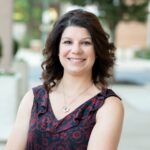
Amie Myrick, LCPC specializes in working with traumatized populations. She currently oversees multiple national projects aimed at reducing and preventing substance use, overdose, and the impact and occurrence of ACEs. Myrick is an ACE Master Presenter in the state of Maryland and a national HOPE Facilitator and technical assistance provider. She has presented at local, national, and international conferences for over 18 years on topics related to trauma and advocacy. Myrick has provided direct care as a therapist, supervisor, clinical coordinator, and member of multidisciplinary teams for over 13 years. She provides research and training consultation for groups interested in infusing trauma-informed approaches into their work, building parenting and therapist-based skills, and learning more about comprehensive treatment for populations affected by trauma. Her “why” is to create a compassionate world so that all can feel seen.
Embracing Practice and Advancing HOPE through the Standards of Quality for Family Strengthening and Support
About the Workshop
This workshop will provide an overview of the nationally-adopted Standards of Quality for Family Strengthening & Support and how they can be utilized to enhance practice to advance the HOPE framework and the Four Building Blocks of HOPE. The Standards address 5 critical areas of practice for any program or individual who works with families – Family Centeredness, Family Strengthening, Diversity, Equity, and Inclusion, Community Strengthening, and Evaluation.
Six Standards of HOPE Covered
- Knowledge of HOPE Framework
- Supporting Family Strengths and Resilience
- Anti-Racist Practice and Culturally Resonant Care
- Amplifying Four Building Blocks
Workshop Sessions
- Wednesday, March 20, 2024 | 1:30 PM – 3:00 PM ET
- Wednesday, March 20, 2024 | 3:30 PM – 5:00 PM ET
About the Presenters
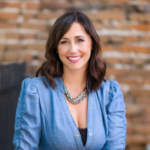
Brenda McChesney co-founded the National Family Support Network (NFSN) in 2011 and served as its co-chair until 2017. She has dedicated over 25 years to spearheading transformative family support movements. She has extensive leadership experience in the non-profit sector, philanthropic sector, and as an entrepreneur and wellness expert. Throughout her career, she has driven exponential growth and excellence in the field of family support by establishing strategic partnerships, shaping collaborative initiatives, developing innovative fee-for-service models, and creating impactful training and technical assistance programs for networks, non-profits, family support staff, children, and families.
McChesney’s work in the family support field began as a doula and lactation educator in Bakersfield, California. Upon moving to La Veta, Colorado in 2002, she founded Healthy Beginnings of Southern Colorado, providing pre and postnatal family support services for underserved communities. In 2010, she became the Director of Strengthening Families Programs for Colorado’s Family Resource Center Association (FRCA). In that role, she co-founded and co-chaired the Colorado Strengthening Families Network, and co-chaired the Prevent Child Abuse Colorado Advisory Council, the Colorado Strengthening Families Bi-Annual Conference, and the Colorado Early Childhood Partnership. In 2015, she took on a role in philanthropy as a Director at the Hemera Foundation, managing over $10 million in grant funding for early childhood and family support programs across the country.
McChesney earned her BA in social science from California State University Chico and her MA in sociology of race and gender from California State University Bakersfield.
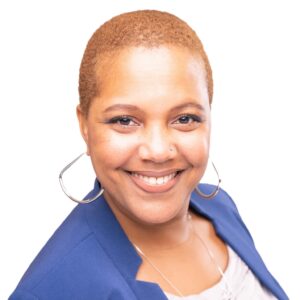 Alexis Thomason, MsED, CMT-P, is the founder of The Noble Maat Collective, a startup that provides mindfulness and meditation workshops, coaching and retreats for educators, program staff and leaders in the public service sectors. She is also the Executive Director of Creative City Public Charter School Inc., a K-5, arts-integrated charter school in Baltimore City. Alexis has a Bachelor’s degree in Management and a Master’s degree in Ed Psych. from NYU, specializing in the Psych. of Parenthood.
Alexis Thomason, MsED, CMT-P, is the founder of The Noble Maat Collective, a startup that provides mindfulness and meditation workshops, coaching and retreats for educators, program staff and leaders in the public service sectors. She is also the Executive Director of Creative City Public Charter School Inc., a K-5, arts-integrated charter school in Baltimore City. Alexis has a Bachelor’s degree in Management and a Master’s degree in Ed Psych. from NYU, specializing in the Psych. of Parenthood.
HOPE from the Ground Up
About the Workshop
Idaho Association for the Education of Young Children (IdahoAEYC) brings together communities, leaders, parents, child care providers, and educators who believe all Idaho’s children deserve a chance at quality learning to help them grow and develop. In our workshop, we will showcase how we are spreading the good news of HOPE across the state of Idaho through networks of Early Learning Collaboratives, Communities of Practice and partnerships with passionate people and organizations.
Good people have always done a good job of caring for children. Our first activity will be to identify the challenges we’ve faced in Idaho and encourage participants to explore their own challenges. Our next activity will be to share how we overcame challenges through grassroots efforts and ask for participants to brainstorm their own strengths and potential networks. By the end of our presentation, participants will make a plan to start growing their networks and community connections as they share the Four Building Blocks of HOPE within their state.
We recognize that the strength of Idaho lies in our diverse communities. Through small but significant changes and using strengths-based approaches to practices by imbedding the Strengthening Families and Four Building Blocks of HOPE frameworks into the foundation of how we do things, we can reduce stress in families and create positive experiences that will lead to better outcomes for children. We are seeing how Moments of HOPE are supporting family engagement and improving children’s overall wellness and school readiness… from the ground up!
Six Standards of HOPE Covered
- The Bridge to HOPE
Workshop Sessions
- Wednesday, March 20, 2024 | 1:30 PM – 3:00 PM ET
- Thursday, March 21, 2024 | 2:00 PM – 3:30 ET
About the Presenters
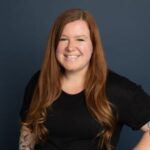 Amanda Mills has worked in early childhood education in Idaho’s Treasure Valley for over 20 years. She is the Strengthening Families Specialist at Idaho Association for the Education of Young Children (IdahoAEYC) and works with early childhood professionals, families and family-serving organizations to integrate the Strengthening Families framework and the Four Building Blocks of HOPE into practice.
Amanda Mills has worked in early childhood education in Idaho’s Treasure Valley for over 20 years. She is the Strengthening Families Specialist at Idaho Association for the Education of Young Children (IdahoAEYC) and works with early childhood professionals, families and family-serving organizations to integrate the Strengthening Families framework and the Four Building Blocks of HOPE into practice.
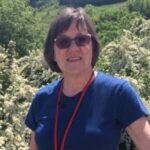 Maureen Durning is the owner and director of Butterfly Trainings that Transform LLC, a Strengthening Families training and consulting firm in Boise, Idaho. She is the co-author of many Strengthening Families curricula, most recently STRONG: Teaching the Strengthening Families Protective Factor Framework to Parents and Professionals. Durning has worked in the fields of parenting education, child abuse prevention, and training development for many years, has trained hundreds of trainers nationally, and has presented at numerous national conventions.
Maureen Durning is the owner and director of Butterfly Trainings that Transform LLC, a Strengthening Families training and consulting firm in Boise, Idaho. She is the co-author of many Strengthening Families curricula, most recently STRONG: Teaching the Strengthening Families Protective Factor Framework to Parents and Professionals. Durning has worked in the fields of parenting education, child abuse prevention, and training development for many years, has trained hundreds of trainers nationally, and has presented at numerous national conventions.
HOPE for All Ages
About the Workshop
While the HOPE framework is most often used in the context of early childhood, the versatility of the framework is adaptable for college students, parents, and caregivers. This workshop aims to broaden the scope of the HOPE framework by extending its application beyond early childhood to encompass additional demographics. Additionally, the session will encourage participants to reflect on how the HOPE framework relates to their own experiences.
Presenters will share the latest research for each population tied to the Four Building Blocks of HOPE and invite participants to reflect on positive experiences unique to each age group. Through leveraging collaborative online tools, participants will have the chance for peer exchange to share their thinking and experience around the HOPE framework.
Presenters will describe work being done at San Diego State University to inform, inspire, and create positive experiences tied to the Building Blocks on a university campus. This exploration will lay the groundwork for developing a methodology to transform the institution into a HOPE-Inspired University. With a focus on healthy aging across the lifespan, presenters will also describe how the HOPE Framework informs the Age-Friendly Communities movement and leads to healthy longevity.
Six Standards of HOPE Covered
- Knowledge of the HOPE Framework
- Amplifying the Four Building Blocks
Workshop Sessions
- Wednesday, March 20, 2024 | 1:30 PM – 3:00 PM ET
- Wednesday, March 20, 2024 | 3:30 PM – 5:00 PM ET
About the Presenters
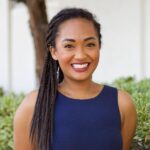 Yvonne Epps, MSW is the Project Manager at the Social Policy Institute (SPI) at San Diego State University, leading the HOPE University project. In addition to this role, she actively supports Wellness System initiatives at SPI, contributing to the Integrated Core Practice Model training, conducting Continuous Quality Improvement data analysis, and providing administrative support. Before joining SPI, she worked as a Protective Services Worker for the County of San Diego, serving as both a child abuse/neglect investigator and case manager. Epps brings a person-centered, strengths-based, and equity-focused approach to her work. She earned her bachelor’s degree in social work from San Diego State University and her masters’ degree from Boston University.
Yvonne Epps, MSW is the Project Manager at the Social Policy Institute (SPI) at San Diego State University, leading the HOPE University project. In addition to this role, she actively supports Wellness System initiatives at SPI, contributing to the Integrated Core Practice Model training, conducting Continuous Quality Improvement data analysis, and providing administrative support. Before joining SPI, she worked as a Protective Services Worker for the County of San Diego, serving as both a child abuse/neglect investigator and case manager. Epps brings a person-centered, strengths-based, and equity-focused approach to her work. She earned her bachelor’s degree in social work from San Diego State University and her masters’ degree from Boston University.
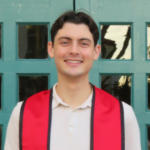 Jakob Schmall is a Program Coordinator at SPI supporting a wide variety of projects from aging services to wellness and prevention programs. His primary work focus includes community health policy issues, health equity, and communications. Schmall is passionate about contributing his experience with ACEs research and interdisciplinary background to the public health and social wellness fields. He recently graduated from San Diego State University’s Masters in Public Health program, with an emphasis in health management and policy.
Jakob Schmall is a Program Coordinator at SPI supporting a wide variety of projects from aging services to wellness and prevention programs. His primary work focus includes community health policy issues, health equity, and communications. Schmall is passionate about contributing his experience with ACEs research and interdisciplinary background to the public health and social wellness fields. He recently graduated from San Diego State University’s Masters in Public Health program, with an emphasis in health management and policy.
HOPE for Support Specialists
About the Workshop
This workshop will introduce community, peer, and family support specialists to incorporating the HOPE framework into their everyday work lives. As people who have, to a large extent, experienced the impact of adverse childhood experiences (ACEs) in their own lives and working with others with lived experiences of ACEs, support specialists are in a unique position to bring the HOPE framework to members of their communities and people they work with.
This workshop will help support specialists to better understand their own pasts and to train parents, families, and providers in the HOPE framework to create multigenerational outcomes. With trauma-informed approaches, support specialists can incorporate the Four Building Blocks of HOPE to help heal and further the recovery of people they work with and improve outcomes for children by educating parents to identify the Building Blocks lacking their lives and then find and create access to these Building Block for them and their children. This approach takes the HOPE framework into the realm of trauma-informed, multigenerational support, healing, and improved overall outcomes, reaching beyond those touched through direct services into families and communities.
Six Standards of HOPE Covered
- Knowledge of the HOPE Framework
Workshop Sessions
- Wednesday, March 20, 2024 | 3:30 PM – 5:00 PM ET
About the Presenter
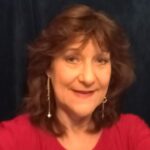
Danell “Danny” Spillman is the Program Director for Bayou Lotus Corporation, a nonprofit community-based organization focused on Community Health and Peer and Family Support. An author, educator, facilitator, trainer, and supervisor, she works with trauma-informed, Strengthening Families, and HOPE frameworks to help people mitigate the effects of adverse childhood experiences, mental illness, substance use, and chronic illness to break free of destructive cycles, harmful systems, personal and intergenerational trauma and to increase overall healthier outcomes and quality of life. Spillman continues to work through Community Health and Peer and Family Support to increase positive outcomes and overall healthier outcomes for those she serves.
HOPE-Informed Public Health Messaging and Communication: The Safe Sleep Plan
About the Workshop
This workshop is designed to re-invigorate safe infant sleep education and provide a new, HOPE-informed, community-developed messaging and communication framework, the “Safe Sleep Plan”. The “Safe Sleep Plan” messaging framework was designed to provide parents and caregivers with comprehensive, evidence-based information about safe infant sleep practices in an empowering, non-judgmental, culturally relevant, non-fear-based way.
The session will discuss how the “Safe Sleep Plan” messaging framework and process for developing this framework align with HOPE Standards of Supporting Family Strengths and Resilience and Anti-Racist Practice and Culturally Resonant Car and center the Building Blocks of Relationships, Environment, and Emotional Growth. The session will include discussion of information about sudden unexpected infant death (SUID) and SUID prevention, synthesis of research and discussion of the need to change how we message and communicate about safe sleep, discussion of the “Safe Sleep Plan” messaging framework, and discussion of the process for developing this framework, which involved reviewing literature, seeking feedback from current and expectant parents and professionals, and using all these sources of wisdom to create the final products.
Audience participation will be incorporated throughout the presentation with game-like polls and Jamboard. Through these engagement opportunities, participants will be asked a combination of reflective questions to connect presented information to HOPE, and survey questions to bring forward the wisdom and experiences of the group. Participants will gain access to the new, HOPE-informed suite of SUID prevention materials developed by Spokane Regional Health District which can be adopted or adapted for other communities. Participants will leave with inspiration and strategies to incorporate HOPE into campaigns.
Six Standards of HOPE Covered
- Supporting Family Strengths and Resilience
- Anti-Racist Practice and Culturally Resonant Care
Workshop Sessions
- Wednesday, March 20, 2024 | 1:30 PM – 3:00 PM ET
- Thursday, March 21, 2024 | 1:00 PM – 2:30 PM ET
About the Presenter
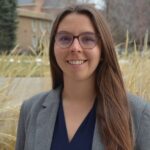 As the Spokane Regional Health District‘s Keeping Children Safe Coordinator, Mia Morton is focused on preventing injury, violence, and mortality among infants, children, and adolescents in Spokane County, WA. Coordinating the prevention-oriented Child Fatality Review process is a central function of her role. Morton is driven to understand how personal, social, and environmental factors interact to influence health, and dedicated to using this understanding to generate positive change. She approaches her work with a strong belief in the power of our community, and a desire to create systems of support that empower people to make the safest, healthiest choices for themselves and their families. Morton completed her bachelor of science in child psychology at the University of Minnesota’s Institute of Child Development. Currently, she is completing her master of public health at the University of Nebraska Medical Center. She has received awards for leadership and scholarly excellence in equity and diversity.
As the Spokane Regional Health District‘s Keeping Children Safe Coordinator, Mia Morton is focused on preventing injury, violence, and mortality among infants, children, and adolescents in Spokane County, WA. Coordinating the prevention-oriented Child Fatality Review process is a central function of her role. Morton is driven to understand how personal, social, and environmental factors interact to influence health, and dedicated to using this understanding to generate positive change. She approaches her work with a strong belief in the power of our community, and a desire to create systems of support that empower people to make the safest, healthiest choices for themselves and their families. Morton completed her bachelor of science in child psychology at the University of Minnesota’s Institute of Child Development. Currently, she is completing her master of public health at the University of Nebraska Medical Center. She has received awards for leadership and scholarly excellence in equity and diversity.
How to Support Family Voice in Your Work
About the Workshop
This session will focus on how to engage and empower family leaders and why family voice is a critical component in delivering services with a high level of quality and impact and in large-scale systems change work. A participant poll will be used to understand the type of work they currently do and their knowledge of and experience with family engagement and leadership.
The importance and power of family voice will be discussed, and the continuum of family voice and leadership will be presented. In small groups, participants will reflect on their current family engagement/leadership practices and where they fall within the continuum. The groups will be asked to share insight or “ah-ha” moments with the large group.
Family Leaders will explain the purpose, structures, and activities of the Early Childhood Comprehensive Systems (ECCS) Family Leadership Group while weaving in their lived experiences and personal feelings about their work. The ECCS Family Lead will explain how the group was developed, how they are supported, lessons learned and future goals.
Participants will be given guiding questions to support the development of an action plan to increase family leadership in their work. Time will be allotted for individual planning and large group sharing. Questions will be encouraged throughout the presentation through the chat and in the large group setting.
Six Standards of HOPE Covered
- Supporting Family Strengths and Resilience
Workshop Sessions
- Wednesday, March 20, 2024 | 3:30 PM – 5:00 PM ET
About the Presenters

Darbi Hunt is the Birth-Five Projects Manager for Black Hills Special Services Cooperative’s (BHSSC) Community and Family Services division where she stays busy creating and providing resources and trainings to families and childcare providers and is excited to be supporting the launch of the Families First Home Visiting Program. She is also the Family Lead for the South Dakota Early Childhood Comprehensive Systems Collaborative and teaches and coordinates Common Sense Parenting classes. Hunt serves on several boards and committees including South Dakota’s Learn the Signs Act Early Team; the Education, Innovation and Research Task Force; and Early Learner South Dakota Leadership, serving as the co-chair of their Collaboration Committee.
Darbi graduated Summa Cum Laude from Black Hills State University with a bachelor of science in applied psychology in 1997 and started at BHSSC in 1998. She has had the opportunity to work in many programs throughout its five divisions.
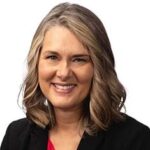 A strategic and collaborative leader with experience in higher education teaching and management, non-profit leadership, and interdisciplinary community-based projects, Darla Biel is the Assistant Director at The Center for the Prevention of Child Maltreatment at the University of South Dakota’s School of Health Sciences. She serves as the South Dakota Early Childhood Comprehensive Systems Collaborative‘s Lead, convening an interagency advisory board and community partners to build a shared vision and plan for ensuring a strong start for all South Dakota children. Biel is also project lead for Resilient Communities, a community-led initiative that increases collective capacity to know about, respond to, and prevent child abuse, and for a WIC Community Innovation and Outreach project. In all her projects, Biel strives to engage youth, families, and communities as expert consultants and co-researchers.
A strategic and collaborative leader with experience in higher education teaching and management, non-profit leadership, and interdisciplinary community-based projects, Darla Biel is the Assistant Director at The Center for the Prevention of Child Maltreatment at the University of South Dakota’s School of Health Sciences. She serves as the South Dakota Early Childhood Comprehensive Systems Collaborative‘s Lead, convening an interagency advisory board and community partners to build a shared vision and plan for ensuring a strong start for all South Dakota children. Biel is also project lead for Resilient Communities, a community-led initiative that increases collective capacity to know about, respond to, and prevent child abuse, and for a WIC Community Innovation and Outreach project. In all her projects, Biel strives to engage youth, families, and communities as expert consultants and co-researchers.
If You Build it They Will Come: Creating a Partnership for a Resilient Kentucky (PaRK) to Promote HOPE Statewide
About the Workshop
Partnership for a Resilient Kentucky (PaRK) launched in May 2022 as a network of public and private agencies and providers dedicated to spreading and implementing the science of positive childhood experiences (PCEs) and the Four Building Blocks of HOPE across Kentucky’s System of Care. This session will describe the collaborative and multi-agency process of creating and sustaining the multidisciplinary network and PaRK website, and ongoing efforts to spread knowledge and amplify the Building Blocks, support family and community resilience, and leverage leadership to implement the science of PCEs into daily work at the practice, advocacy and policy levels.
Six Standards of HOPE Covered
- The Bridge to HOPE
Workshop Sessions
- Wednesday, March 20, 2024 | 1:30 PM – 3:00 PM ET
About the Presenters
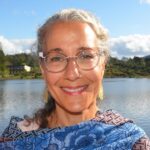 Miriam Silman is an Executive Advisor at the Kentucky Department for Behavioral Health, Developmental and Intellectual Disabilities, working to create a trauma-informed, resilience-oriented system of service delivery and workforce support across the Cabinet for Health and Family Services. This work supports public and private agencies, providers and organizations within state government and across the state to become more trauma-informed and resilience-focused. She has worked as a clinician, researcher and trainer focusing on trauma and resilience across various populations, professionals, and service sectors for more than 30 years including at Mountain Comprehensive Care Center, the University of Kentucky Department of Psychiatry, and the University of Kentucky Center on Trauma and Children. Silman has a BA from Brown University, an MSW from the University of Kentucky, and completed her doctoral coursework in social work at the University of Kentucky.
Miriam Silman is an Executive Advisor at the Kentucky Department for Behavioral Health, Developmental and Intellectual Disabilities, working to create a trauma-informed, resilience-oriented system of service delivery and workforce support across the Cabinet for Health and Family Services. This work supports public and private agencies, providers and organizations within state government and across the state to become more trauma-informed and resilience-focused. She has worked as a clinician, researcher and trainer focusing on trauma and resilience across various populations, professionals, and service sectors for more than 30 years including at Mountain Comprehensive Care Center, the University of Kentucky Department of Psychiatry, and the University of Kentucky Center on Trauma and Children. Silman has a BA from Brown University, an MSW from the University of Kentucky, and completed her doctoral coursework in social work at the University of Kentucky.
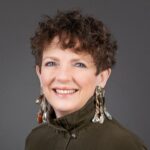 Connie White, MD, MS practiced OB/GYN in Frankfort, Kentucky, for over 20 years. She retired from clinical medicine and joined the Kentucky Department for Public Health (KDPH) as the Director, Division of Women’s Health, in 2009. She moved to the College of Public Health at the University of Kentucky in 2011 in the Department for Health Behavior and them back to KDPH as Deputy Commissioner of Clinical Affairs in 2011. Dr. White has been Principal Investigator for multiple grants that included chronic diseases to substance use disorder. She is the medical advisor to the Kentucky Perinatal Quality Collaborative-a common table for providers, birthing hospitals, and insurers to improve the quality of maternal and newborn care in Kentucky.
Connie White, MD, MS practiced OB/GYN in Frankfort, Kentucky, for over 20 years. She retired from clinical medicine and joined the Kentucky Department for Public Health (KDPH) as the Director, Division of Women’s Health, in 2009. She moved to the College of Public Health at the University of Kentucky in 2011 in the Department for Health Behavior and them back to KDPH as Deputy Commissioner of Clinical Affairs in 2011. Dr. White has been Principal Investigator for multiple grants that included chronic diseases to substance use disorder. She is the medical advisor to the Kentucky Perinatal Quality Collaborative-a common table for providers, birthing hospitals, and insurers to improve the quality of maternal and newborn care in Kentucky.
Meeting the Moment to Take Positive Health Equity to Scale: Leveraging the Engagement In Action Framework to Catalyze Integrated Early Childhood Health Systems
About the Workshop
This session introduces the Engagement In Action (EnAct!) framework and places efforts to promote the HOPE framework in the larger context of the children’s health system’s transformation. EnAct! was designed to serve as a national model for state and local implementation and focuses on translating the science of healthy development by scaling strategies, innovations, and policies to equitably promote child flourishing, school readiness, and family resilience, foster positive childhood experiences (PCEs), and prevent and mitigate the impacts of adverse childhood experiences (ACEs).
The EnAct! framework achieves its positive health equity purpose using a through-any-door family engaged approach powered by interoperable whole child and family assessment and data sharing tools and HOPE-aligned health promotion interventions. Together, they drive collaborations across health care, early childhood systems, and community partners as they work to close persistent gaps in the utilization, quality, and equity of preventive and developmental services for children aged 0-5. In full alignment with the national Bright Futures Guidelines, healthcare and state early childhood systems’ goals, and performance standards and evidence-based strategies, the EnAct! approach works to leverage system strengths and overcome barriers to real engagement and coordinated, cross-system action so all children and families thrive! The EnAct! framework is offered to accelerate progress by bolstering and building the capacity of families, communities, children’s health care, and all early childhood systems to partner in the joyful work to measurably improve the well-being of all children and families, as well as that of the professionals that serve them.
Workshop Sessions
- Thursday, March 21, 2024 | 1:00 PM – 2:30 PM ET
About the Presenters

Redefining Resilience within the Strengthening Families Framework
About the Workshop
Resilience is often seen as situated within the individual and defined as “positive adaptation despite adversity.” These ideas are problematic because they place the locus of solutions to problems and the process of change entirely on the individual, implicitly blame the individual experiencing adversity, and minimize or exonerate communities and society from their responsibility to deal with adverse social conditions. An expanded definition of resilience, reflected in new Strengthening Families materials from the Center for the Study of Social Policy, emphasizes the need to consider factors across all levels of the social ecology—societal, community, relational, and individual—that impact the lives of children, youth, parents, and families and help to build or undermine resilience.
A series of question prompts will be presented to the audience that will seek their reflections on:
- The rationale for redefining the construct “resilience”
- The revised definition; and
- Examples of factors across each level of the social ecology that undermine and/or facilitate resilience
Six Standards of HOPE Covered
- Supporting Family Strengths and Resilience
Workshop Sessions
- Wednesday, March 20, 2024 | 3:30 PM – 5:00 PM ET
- Thursday, March 21, 2024 | 1:00 PM – 2:30 PM ET
About the Presenters
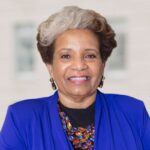
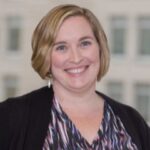
Cailin O’Connor is a Senior Associate at the Center for the Study of Social Policy (CSSP), where she works to promote better outcomes for young children and their families, with a focus on promoting the protective factors that children, families, and communities need to thrive. This includes coordinating the Strengthening Families National Network of 35 states using CSSP’s Strengthening Families Protective Factors Framework, and supporting cities and counties in their efforts to better support early learning throughout their communities as part of Early Learning Nation.
O’Connor’s work has addressed a wide range of issues, including positive and adverse childhood experiences, resilience, early childhood system building, family support, and child abuse and neglect prevention. She is a graduate of Macalester College, and holds a master’s degree in human development and family studies and a graduate certificate in prevention and intervention science from the University of Wisconsin-Madison.
The Ripple Effect of Parent Leadership
About the Workshop
To ensure that all young children have what they need to thrive, the role of parents must be elevated in society. Family engagement is the systematic inclusion of parents in the planning and evaluation of programs and institutions that promote children’s learning and well-being. Research shows that successful family engagement leads to positive outcomes for children, families, and communities. Participants in this workshop will hear from Magda Rodriguez, Senior Director of National Strategy and a national family engagement expert; and from Qin Li, Senior Program Manager of The Ripple Program, a parent alum who began her journey as a parent leader and now oversees the Ripple Program across Massachusetts.
During this workshop, participants will explore family engagement as a tool for systems change that ensures parents are seen as agents of change. There will be opportunities for participants to engage in discussions and small group activities around the common challenges organizations face when implementing family engagement; and practical strategies on how to overcome barriers and develop sustainable and culturally relevant family engagement programs. Throughout the workshop, participants will hear about several effective Community Impact Projects led by parent leaders in partnership with agencies in Massachusetts. At the end, participants will have the opportunity to identify the most pressing needs in family engagement.
Six Standards of HOPE Covered
- Anti-Racist Practice and Culturally Resonant Care
- Supporting Family Strengths and Resilience
Workshop Sessions
- Wednesday, March 20, 2024 | 1:30 PM – 3:00 PM ET
- Thursday, March 21, 2024 | 1:00 PM – 2:30 PM ET
About the Presenters
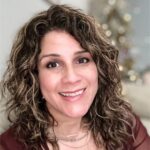
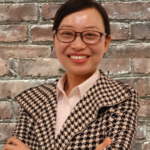 Qin Li is an immigrant mother with two young boys, and she has engaged with Families First since 2019 as a participant in the Power of Parenting program. Her roles have included Parent Ambassador, Project Assistant, Program Manager, and Senior Program Manager. As a Senior Program Manager, Li has overseen the Ripple Program, including the Parent Leadership Series and Community Impact Projects. She is now working closely with various organizations and agencies across the nation.
Qin Li is an immigrant mother with two young boys, and she has engaged with Families First since 2019 as a participant in the Power of Parenting program. Her roles have included Parent Ambassador, Project Assistant, Program Manager, and Senior Program Manager. As a Senior Program Manager, Li has overseen the Ripple Program, including the Parent Leadership Series and Community Impact Projects. She is now working closely with various organizations and agencies across the nation.
Before joining Families First, Li was a lecturer at Wuhan University, focusing on women’s empowerment and children’s development. She is also a scholar-activist and filmmaker with a short film, “Campaign for a New American,” about immigrants’ political participation in Revere. She received her PhD in management from Huazhong Normal University. She was a Fulbright Scholar at Harvard University in 2010 and a visiting assistant researcher at the University of California, Berkeley, in 2018.
Unveiling Strengths: Navigating Beyond Wishful Thinking and Persisting in the Face of Adversity
About the Workshop
Join us for an insightful journey as we peel away the profound power of optimism beyond wishful thinking. The process of “Unveiling Strengths” dismantles the blindfold of toxic positivity, revealing a genuine strengths-based approach in professional practices that enhances health, enriches relationships, and fosters well-being from early years into adulthood. A strengths-based approach catalyzes meaningful partnerships engaging in planning and implementation toward HOPE. Delve into the delicate balance of staying authentically strengths-based without falling into the pitfalls of toxic positivity.
Six Standards of HOPE Covered
- Supporting Family Strengths and Resilience
Workshop Sessions
- Thursday, March 21, 2024 | 1:00 PM – 2:30 PM ET
About the Presenters
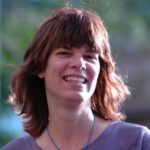 Angela Rau, MAT is an author, trainer, consultant, and coach within the home visiting system to leverage a relational approach to professional practice. As the Director of Program Innovations and Professional Development at Parents as Teachers, she led training design and professional development and co-designed the first virtual home visiting program. Rau is co-editor “Coaching in Home Visiting Space,” a Brookes Publishing book and workbook expected in 2024. Rau has passionately spread the HOPE message and built and developed young parents’ protective factors internationally.
Angela Rau, MAT is an author, trainer, consultant, and coach within the home visiting system to leverage a relational approach to professional practice. As the Director of Program Innovations and Professional Development at Parents as Teachers, she led training design and professional development and co-designed the first virtual home visiting program. Rau is co-editor “Coaching in Home Visiting Space,” a Brookes Publishing book and workbook expected in 2024. Rau has passionately spread the HOPE message and built and developed young parents’ protective factors internationally.
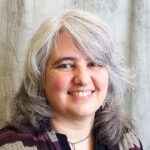 Christine Zimmerman, LMSW is a licensed social worker with over 20 years of experience as well as a published author and a passionate advocate for personal and professional growth through coaching, consulting, and professional development. Her global teaching background includes workshops for early childcare providers and home visitors, social workers, educators, and leaders. Zimmerman’s facilitation style is all about helping leaders leverage their strengths to achieve their desired outcomes.
Christine Zimmerman, LMSW is a licensed social worker with over 20 years of experience as well as a published author and a passionate advocate for personal and professional growth through coaching, consulting, and professional development. Her global teaching background includes workshops for early childcare providers and home visitors, social workers, educators, and leaders. Zimmerman’s facilitation style is all about helping leaders leverage their strengths to achieve their desired outcomes.
Her global teaching background spans across in-person and virtual workshops for early childcare providers and home visitors, social workers, educators, and leaders. Zimmerman has supported diverse groups, from leadership teams to non-profit organizations, schools to communities, and childcare providers to teachers. Her facilitation style is all about helping leaders leverage their strengths to achieve their desired outcomes. She helps them let go of mindsets and behaviors that hold them back and nurtures the ones that propel them forward.
What’s STRONG with Us? Amplifying Strengths in our Family Culture
About the Workshop
We have heard of the line “hurt people, hurt people” and for many of us, experiences of hurt and pain started at home. Family can be the place where ACEs happen. Yet, family can also be the place to learn about resilience, growth mindset, and hope. It can also be the starting place for promoting strengths, understanding and advocating needs, and learning about emotional regulation and co-regulation. In this session, we explore the question: how might we create a family environment where we can promote stability, security, safety, trust, and belonging?
Six Standards of HOPE Covered
- Supporting Family Strengths and Resilience
Workshop Sessions
- Wednesday, March 20, 2024 | 1:30 PM – 3:00 PM ET
- Thursday, March 21, 2024 | 1:00 PM – 2:30 PM ET
About the Presenter
 Lana Kristine Jelenjev works in the intersection between learning and community. As a community alchemist, she supports organizations in designing purpose-driven, healing-centered, transformational communities. As a senior learning design strategist, Jelenjev works with organizations that are aware, appreciative and advocates of systems thinking, designing for change, and intentionally crafting learning experiences that are steeped in deepening practice and integration.
Lana Kristine Jelenjev works in the intersection between learning and community. As a community alchemist, she supports organizations in designing purpose-driven, healing-centered, transformational communities. As a senior learning design strategist, Jelenjev works with organizations that are aware, appreciative and advocates of systems thinking, designing for change, and intentionally crafting learning experiences that are steeped in deepening practice and integration.
Jelenjev is the author of “Community Builder: Designing Communities for Change“, “The 90 Day Action Planner“, and “What’s STRONG with You?” She is the chairperson for Neurodiversity Foundation and co-founder of Neurodiversity Education Academy, a training and educational platform aimed at bridging the gaps for all neurotypes to thrive and is a collaborator for The Hum, Happy Startup School and Community Rituals.
What does HOPE look like for ME? Exploring HOPE approaches and experiences in any role in your organization, to cultivate confidence, connection and belonging
About the Workshop
Whether you’re in a development, administrative, finance, human resources, or leadership role, you can integrate and elevate the HOPE framework. Come to a conversation with the YMCA of San Diego County Integrated Learning team, which provides learning opportunities focused on building HOPE-informed skills and practice to community members and staff in a variety of roles. You will have the opportunity to hear how others have promoted moments of HOPE in their area of work, connect with attendees in similar roles, and explore what promoting the Four Building Blocks of HOPE looks like for you.
Six Standards of HOPE Covered
- Bridge to HOPE
Workshop Sessions
- Wednesday, March 20, 2024 | 1:30 PM – 3:00 PM ET
About the Presenters
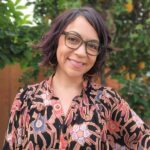
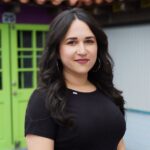 Brandi Paniagua is currently the Coordinator and Trainer with Partners in Prevention, a community-based grant that is stewarded by the YMCA of San Diego County’s Community Support Services. She has been a trainer and educator since she began working in social services 6 years ago. She has a passion for education and equity and has pursued education as her focus in higher learning. As a lifelong San Diegan, she is committed to the community she grew up in, and passionate about family voice and choice, shared and accessible language, community collaboration and transformative justice, and prioritizing the goodness and dignity of all people.
Brandi Paniagua is currently the Coordinator and Trainer with Partners in Prevention, a community-based grant that is stewarded by the YMCA of San Diego County’s Community Support Services. She has been a trainer and educator since she began working in social services 6 years ago. She has a passion for education and equity and has pursued education as her focus in higher learning. As a lifelong San Diegan, she is committed to the community she grew up in, and passionate about family voice and choice, shared and accessible language, community collaboration and transformative justice, and prioritizing the goodness and dignity of all people.
